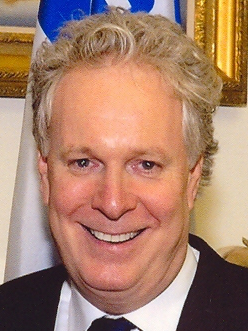
Introduction
Jean Charest, a prominent figure in Canadian politics, has played a significant role in shaping the political landscape of Quebec and Canada as a whole. Having served as Premier of Quebec and a key member of the federal government, Charest’s contributions are well recognized. His career highlights the evolving nature of Canadian politics and the ongoing challenges faced by leaders in fostering unity and progress.
Political Career
Charest began his political journey at a young age, entering public service as a Member of Parliament for Sherbrooke in 1984. He quickly rose through the ranks, serving as Minister of Industry and Minister of the Environment in the cabinet of Prime Minister Brian Mulroney. Charest’s federal journey laid the foundation for his later emergence as one of Quebec’s most significant political figures.
In 2003, Charest became the leader of the Quebec Liberal Party and subsequently was elected as Premier of Quebec, maintaining his position until 2012. His leadership during this period was marked by economic liberalization, infrastructure investments, and major reforms in the education and health sectors. Notably, his government navigated through the post-2008 economic crisis, focusing on economic growth and job creation.
Recent Developments
Though Charest has stepped away from frontline politics in recent years, he remains an influential voice in national discussions. In 2021, he attempted a political comeback as he sought the leadership of the Conservative Party of Canada. Despite not winning, his candidacy re-ignited conversations about the direction of the party and its approach to key issues such as climate change and economic recovery.
Charest’s Influence and Legacy
Jean Charest’s political strategies and policies have left a lasting mark on both provincial and federal levels. His tenure as Premier saw significant investments in sustainable energy and efforts to address social inequality, setting a precedent for future leaders. Additionally, Charest’s role as a bridge-builder between various political factions and cultural communities in Quebec emphasizes his legacy of promoting inclusivity.
Conclusion
As Canada continues to face a myriad of challenges, the experiences and insights of political figures like Jean Charest remain pertinent. His contributions serve as a reminder of the complexities inherent in governance and the importance of collaboration in achieving progress. With elections on the horizon and ongoing discussions about public policy, Charest’s influence will certainly be part of the broader narrative as Canadians seek a cohesive path forward.



